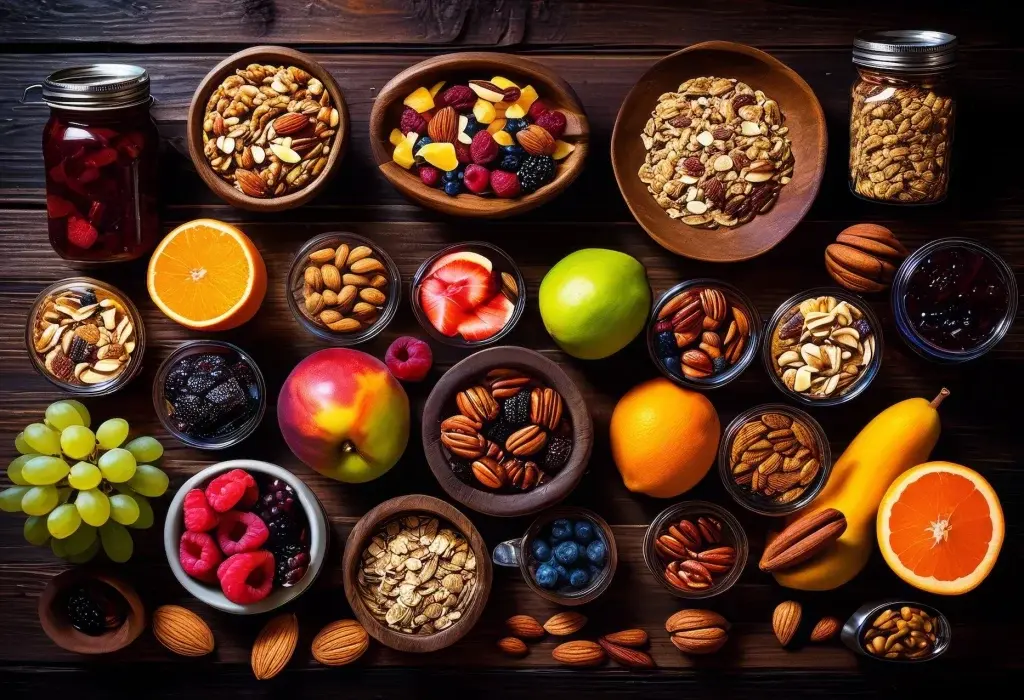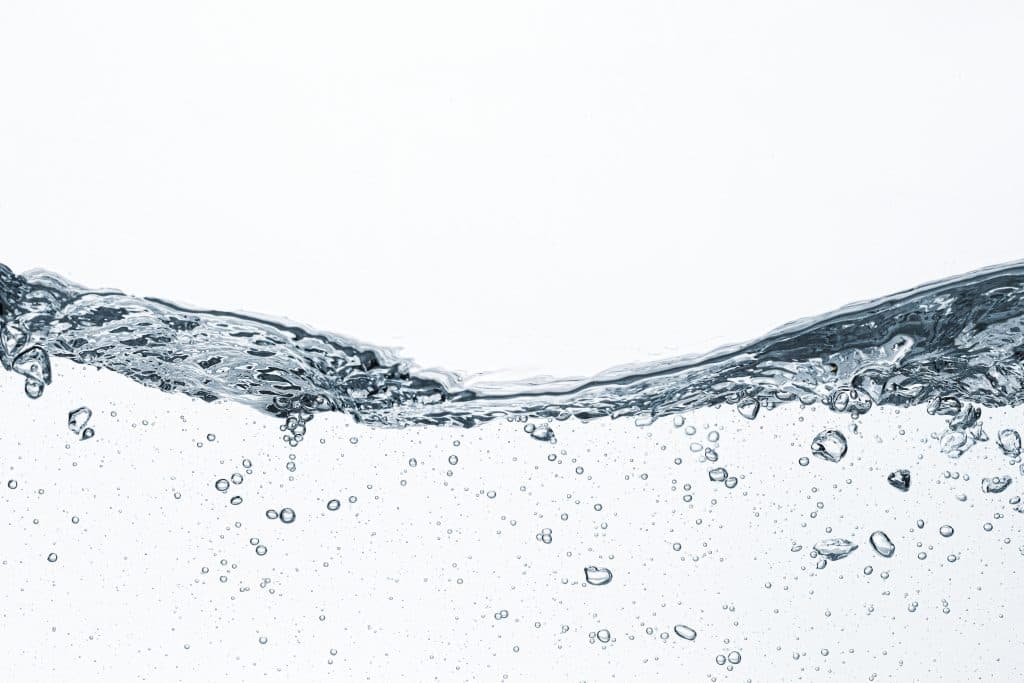Struggling to stay focused? You’re not alone. For neurodivergent people, including those with ADHD, maintaining concentration throughout the day can be a real challenge—but what if the key to better focus is as close as your kitchen? The right snacks can provide more than just a quick energy boost—they can actually help you sharpen your mind and stay on task. In this blog, we’re diving into the best snacks for boosting focus and concentration, specifically tailored for those with ADHD (Attention Deficit Hyperactivity Disorder). Whether you’re looking for a mid-morning pick-me-up or an afternoon brain boost, these snack ideas are packed with the nutrients your brain needs to perform at its best. Let’s dig in!

Why nutrition matters for those with ADHD
Nutrition plays an important role in supporting brain function, especially for individuals with ADHD. The foods we eat directly influence our brain chemistry, affecting neurotransmitters that are responsible for focus, attention, and mood regulation. Avoiding processed foods and understanding how different nutrients impact the brain can help in choosing snacks that keep you alert and attentive throughout the day.
How food impacts the brain
Certain nutrients are essential for brain function, attention span, and cognitive performance. For those with ADHD, a diet rich in specific nutrients can help improve focus and reduce symptoms. Key areas to consider include:
Unlock peak brain performance with science-backed biohacks. Join free now & get your guide for just £4.99 (45% off)!

- Protein: Protein helps to regulate the blood sugar level and supports neurotransmitter production. Including protein in snacks can prevent energy dips and aid concentration.
- Omega-3 fatty acids: Found in fish, seeds, and nuts, omega 3s support brain health and are known to improve attention and mental clarity.
- Complex carbohydrates: These provide a steady release of energy, helping to avoid the highs and lows that come with sugary food. Whole grains, vegetables, and legumes are good options.
- Vitamins and minerals: Nutrients like magnesium, zinc, Vitamin D and b vitamins are linked to better brain function and can aid in reducing hyperactivity and impulsivity.
Balancing energy and focus
Choosing the right snacks is about balance. While quick, sugary snacks might give you a brief burst of energy, they often lead to a crash in concentration. Instead, opt for snacks that combine protein, healthy fat, and slow-releasing carbohydrates to maintain a steady flow of energy and focus throughout the day.
What snacks should you choose based on your lifestyle?
ADHD friendly snacks for those with an active lifestyle
For those with an active lifestyle, whether you’re regularly working out, running around with a busy schedule, or doing physical work, your body needs snacks that offer sustained energy and help with recovery. Here are some snack ideas that combine protein, healthy fats, and slow-releasing carbohydrates to fuel both body and mind.
Nut Butter and Banana Roll-Ups
This quick snack combines protein and natural sugars to keep you energised and satisfied between activities.
-Ingredients: 1 whole wheat tortilla, 2 tablespoons of nut butter (peanut, almond, or cashew), 1 ripe banana
-Recipe: Spread the nut butter evenly over the tortilla. Place the peeled banana at one end and roll it up. Slice into bite-sized pieces for easy snacking.
Greek Yoghurt with Mixed Seeds and Berries
Packed with protein, omega 3 fatty acids, and antioxidants, this snack supports muscle recovery and brain function after a workout.
-Ingredients: 1 cup of Greek yoghurt, 1 tablespoon of mixed seeds (chia, flax, sunflower), a handful of fresh berries (blueberries, strawberries, raspberries)
-Recipe: Spoon the Greek yoghurt into a bowl and top with mixed seeds and berries. Stir and enjoy.
Tuna or Salmon Wraps
These omega 3-rich wraps offer healthy fats and protein that keep your focus sharp and energy levels steady, making them ideal for a post-workout snack.
-Ingredients: 1 whole grain tortilla, 1 small can of tuna or salmon (in water), 1 tablespoon of mayonnaise or Greek yoghurt, a handful of spinach or rocket
-Recipe: Mix the tuna or salmon with the mayonnaise or yoghurt. Spread the mixture onto the tortilla, add the spinach, and roll it up for a satisfying snack.
Trail Mix with Nuts, Dried Fruit, and Dark Chocolate
This combination of healthy fats, protein, and a bit of dark chocolate for a quick pick-me-up makes it perfect for refuelling on the go.
-Ingredients: ¼ cup of mixed nuts (almonds, walnuts, cashews), 2 tablespoons of dried fruit (raisins, apricots, or cranberries), 1-2 squares of dark chocolate (broken into pieces)
-Recipe: Mix all the ingredients in a small container and take it with you for a snack that’s easy to grab while you’re out and about.
Best types of ADHD friendly snacks for a moderately active lifestyle
A moderately active lifestyle typically involves regular but lighter physical activity, such as walking, cycling, or occasional workouts. This lifestyle doesn’t demand as much energy as a highly active one, but it still requires a steady supply of nutrients to maintain focus and stamina throughout the day. For those who are moderately active, snacks that provide a balance of carbohydrates, protein, and healthy fats can help sustain energy without feeling too heavy or overly filling.
Whole Grain Crackers with Cheese
This snack offers a great mix of complex carbohydrates and protein to keep you feeling energised and focused.
-Ingredients: 4-6 whole grain crackers, 2 slices of cheddar or any hard cheese
-Recipe: Simply top each cracker with a slice of cheese. For added variety, you can include a slice of apple or cucumber for a refreshing twist.
Hummus with Vegetable Sticks
Packed with fibre and healthy fats, this snack is light but filling, perfect for a mid-day boost.
-Ingredients: 2 tablespoons of hummus, carrot and cucumber sticks
-Recipe: Slice a carrot and cucumber into sticks. Dip them into hummus for a snack that’s crunchy, nutritious, and satisfying.
Hard-Boiled Eggs with Wholegrain Toast
Eggs are a great source of protein, while wholegrain toast provides the carbohydrates needed for steady energy.
-Ingredients: 1 hard-boiled egg, 1 slice of wholegrain toast
-Recipe: Boil an egg until firm, slice it, and serve on top of the wholegrain toast. Add a sprinkle of pepper or a drizzle of olive oil for extra flavour.
Cottage Cheese with Pineapple
This snack combines protein and a touch of sweetness from fruit, providing energy without being too heavy.
-Ingredients: ½ cup of cottage cheese, ¼ cup of fresh pineapple chunks
-Recipe: Mix the pineapple chunks into the cottage cheese and enjoy a light, refreshing snack.
Snacks for a more sedentary lifestyle
For those with a sedentary lifestyle—often characterised by long periods of sitting, whether at a desk, in meetings, or during leisure time—choosing the right snacks is essential. Since energy needs are lower, it’s important to focus on lighter options that provide brain-boosting nutrients without unnecessary calories. Even if your physical activity is limited, these snacks can help maintain focus and keep energy levels stable throughout the day.
It’s also worth noting that while a sedentary lifestyle may be necessary due to work or other commitments, adding light activity to your routine, such as short walks, stretches, or standing breaks, can significantly improve concentration and overall well-being. Equally important is staying hydrated, as dehydration can quickly lead to fatigue and lack of focus.
Almonds and Dark Chocolate
This snack provides healthy fats, fibre, and a bit of natural sweetness from dark chocolate, making it a satisfying but light option.
-Ingredients: A small handful of raw almonds (about 12-15) and a square of dark chocolate
-Recipe: Simply combine almonds and dark chocolate for a quick snack that offers a balance of protein, fats, and antioxidants without overloading your energy needs.
Avocado on Rye Bread
Rich in healthy fats and fibre, this snack is both filling and light, making it an excellent choice for brain function without adding excessive calories.
-Ingredients: ½ ripe avocado, 1 slice of rye bread, a pinch of salt and pepper
-Recipe: Mash the avocado and spread it onto the rye bread. Add a pinch of salt and pepper to taste, and enjoy a light yet satisfying snack.
Cucumber Slices with Cottage Cheese
This low-calorie snack is hydrating and provides a good source of protein and nutrients to support concentration.
-Ingredients: 1 cucumber, 2 tablespoons of cottage cheese
-Recipe: Slice the cucumber into rounds and top each piece with a small spoonful of cottage cheese. For extra flavour, sprinkle some herbs like dill or chives.
Apple Slices with Peanut Butter
This simple snack provides a balance of protein and natural sugars to keep you feeling full without adding too many calories.
-Ingredients: 1 apple, 1 tablespoon of peanut butter
-Recipe: Slice the apple into wedges and dip each piece into peanut butter for a delicious, balanced snack.
How staying hydrated can help with ADHD symptoms

Staying hydrated plays a key role in supporting overall brain function and can significantly impact the management of ADHD symptoms. Dehydration can lead to fatigue, difficulty concentrating, and mood swings—all of which can exacerbate the challenges of ADHD. Proper hydration helps maintain steady energy levels, improves cognitive performance, and supports mental clarity even for those with a more sedentary lifestyle.
The link between dehydration and focus
When the body is dehydrated, brain cells cannot function optimally. Even mild dehydration has been shown to impair attention, short-term memory, and decision-making—areas that are already challenging for individuals with ADHD. Drinking enough water throughout the day ensures that the brain can continue functioning efficiently, helping to sustain focus and concentration.
Water vs. Sugary Drinks
While it might be tempting to reach for sugary drinks or caffeinated beverages when concentration wanes, these can lead to energy crashes and further distract from tasks. Water is a much better choice, as it hydrates without the risk of energy dips associated with sugar or caffeine. Herbal teas or water infused with fruits can also be a refreshing and hydrating option if plain water feels too repetitive.
How much water is enough?
The amount of water each person needs varies depending on activity levels, climate, and individual requirements, but a good guideline is to aim for 6-8 glasses per day. For those with an active lifestyle, more water may be needed, especially after exercise. Keeping a water bottle close by can help remind you to stay hydrated throughout the day.
Proper hydration is a simple yet effective way to manage some of the cognitive symptoms of ADHD. By staying well-hydrated, you can improve your focus, reduce brain fog, and support better overall cognitive function, helping you navigate the challenges of ADHD with greater ease.
How can supplements complement healthy eating for ADHD?
While a balanced diet is the foundation for good health and improved focus, certain supplements can complement healthy eating, especially for people with ADHD. A dietary supplement can help fill in nutritional gaps and support brain function when specific nutrients are difficult to obtain in sufficient amounts through food alone. However, it’s important to remember that supplements should not replace whole foods. These are most effective when used as part of an overall healthy diet. It’s important to consult with a healthcare professional before adding any to your routine, especially if you have pre-existing health conditions or are taking an ADHD medication.
Omega 3 Fatty Acids
Omega 3 fatty acids, particularly EPA and DHA, are known to support brain health and cognitive function. These essential fats are found in oily fish like salmon and mackerel. If your diet is low in these foods, taking an omega 3 supplement may help. Omega 3s have been linked to improved attention and mood regulation, making them particularly beneficial for neurodivergent individuals.
Magnesium
Magnesium is involved in many processes that support brain function, including neurotransmitter activity and stress management. People with ADHD may benefit from magnesium supplements if they are not getting enough from food sources like leafy greens, nuts, and seeds. Magnesium may help with reducing hyperactivity and improving sleep, both of which can contribute to better focus.
Zinc
Additionally, Zinc is another mineral that plays an important role in regulating neurotransmitters that affect mood, behaviour, and cognitive function. It is found in foods like meat, shellfish, and legumes, but a zinc supplement might be helpful for those with low levels. Some studies suggest that zinc supplementation may improve symptoms of inattention and hyperactivity in individuals with ADHD.
Multivitamins
For those who may struggle to consistently get a wide variety of nutrients through food, a high-quality multivitamin can provide a general boost. It’s important to choose a supplement that includes essential vitamins like B6, B12, and folate, which are linked to energy levels and brain health.
Conclusion
Often managing ADHD through lifestyle choices can make a significant difference in focus, energy, and overall mental health and well-being. By choosing snacks that align with your level of activity, staying hydrated, and considering supplements to complement a healthy diet, you can better support brain function and reduce the impact of ADHD symptoms. Whether you lead an active, moderately active, or more sedentary lifestyle, making mindful choices about what you eat and drink will help keep your body and mind in balance. Small changes, like prioritising nutrient-rich snacks and drinking enough water, can go a long way in improving focus and concentration throughout the day.
Are you looking for meal recipes to go with your healthy snacks? We have some great suggestions here.






